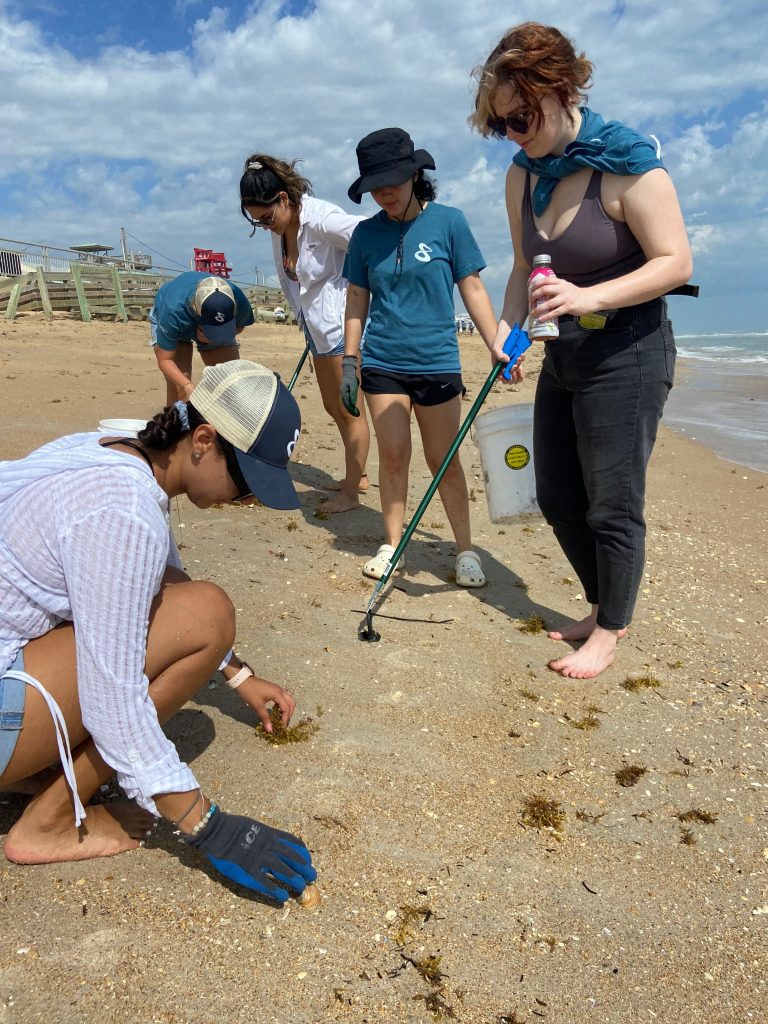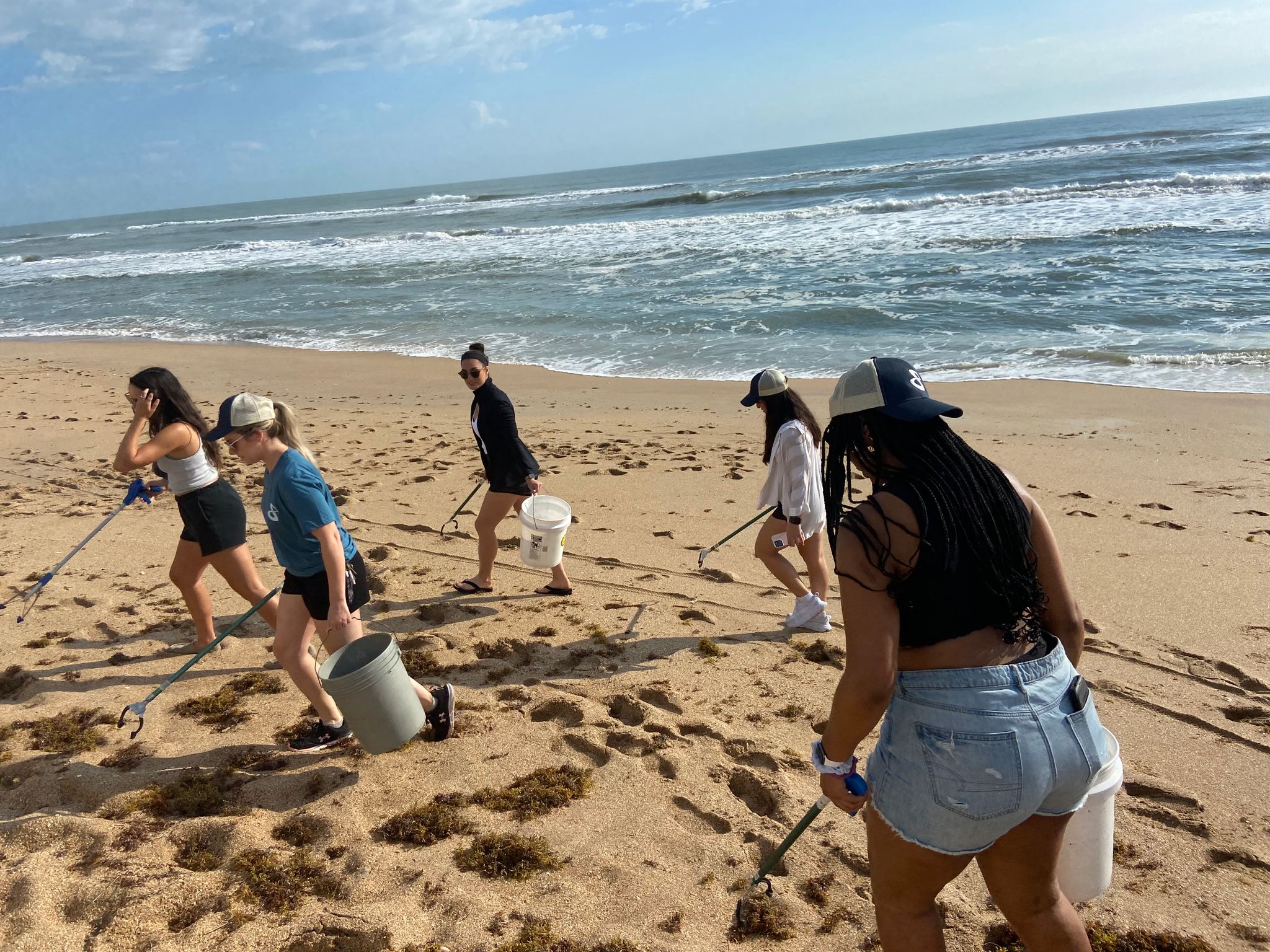Beach clean-ups are vital for safeguarding marine life from pollution and the growing threat of microplastics. As an environmental action organization headquartered in Florida, beach-cleanups make up a large portion of the environmental restoration and protection work we do.
Beach Clean-Ups for Marine Life
Beaches serve as essential habitats for a wide range of marine species, playing a crucial role in maintaining ecological balance. However, these pristine environments are under threat due to pollution, particularly the pervasive presence of plastic waste. Pollution from plastics can harm marine life in various ways. Animals may mistake plastic debris for food, leading to digestive blockages, malnutrition, and even death. Additionally, plastic pollution contributes to the growing problem of microplastics, tiny plastic particles that are less than 5 millimeters in size. Microplastics pose significant risks to marine organisms, as they can be ingested, impacting their health and disrupting ecosystems.

A lot of the trash at the beach has broken down into smaller bits and requires sifting through the sand to find.
Beach clean-up efforts play a critical role in combatting pollution and protecting marine life. By removing litter and plastic debris from beaches and coastal areas, we can prevent these harmful substances from entering the ocean and causing further damage. Beach clean-ups not only physically remove pollution but also raise awareness about the detrimental effects of plastic waste on marine ecosystems, inspiring individuals to adopt more sustainable practices in their daily lives.

IDEAS For Us hosted ESA Solar for a company beach clean-up!
Beach Clean-Ups for Wellbeing
The impact of beach clean-up extends beyond environmental benefits. It also has positive effects on human well-being. Engaging in beach clean-ups allows individuals to connect with nature and experience the therapeutic effects of spending time in natural environments. Studies from various fields, including psychology and cognitive science, have shown that being in nature can reduce stress, improve mood, and enhance overall well-being. By participating in beach clean-ups, individuals not only contribute to the protection of marine life but also experience personal fulfillment and a sense of purpose.
Moreover, beach clean-ups have the power to ignite collective action. When communities come together to clean up their beaches, it fosters a sense of shared responsibility and encourages the adoption of sustainable practices on a larger scale. By witnessing the tangible impact of their actions, individuals are motivated to advocate for policy changes, support recycling initiatives, and address the root causes of pollution. The ripple effect of beach clean-ups can lead to transformative shifts in attitudes and behaviors, promoting long-term environmental stewardship.
Join Us on July 8th!
In conclusion, beach clean-ups are a powerful practice that individuals and communities can engage in to protect marine life from pollution and the threat of microplastics. By removing litter from beaches and coastal areas, we contribute to the preservation of marine ecosystems and demonstrate our commitment to environmental sustainability.
Join us for a day at the beach while we clean up plastic pollution from our shorelines! We will be meeting at Sun Splash Park in Daytona at 9:30 am to disperse and clean up the beaches until 11:30am. You are welcome to stay and enjoy the beach after so pack for a beach day!
We will have a blue tent set up with our buckets, trash pickers and snacks. Please bring sunscreen, your reusable water bottle, and anything else you need to enjoy the beach. There is free parking at this park, so we recommend coming early or on time to ensure a spot.
This event is sponsored by Siemens Gamesa. Thank you to our amazing partners for investing in cleaning our coastal ecosystems!









